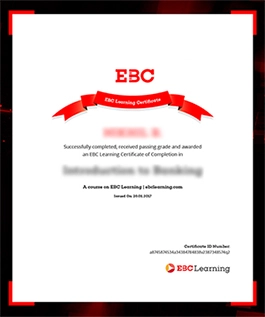Trade Secrets
About Course
Trade Secrets and Confidential Information remain a key component of IP strategies for businesses across different industries. It also provides a competitive advantage that's not limited by time or geographical boundaries. Often, innovators and businesses pose the question of whether trade secrets and confidential information could be a better choice for protecting intangible assets as compared to other options such as patents. In this module, we shall discuss the policies and practices for protecting confidential information and protecting trade secrets through non-disclosure agreements. The module also covers the enforcement of trade secrets and the remedial measures.

I hate the word 'rendering', as it equates to 'pouring concrete' on ideas that demand continuing dialog. 'Trade secrets' imply hoarding of knowledge.
Chris Jordan- 1. 📕 Introduction
- 1.1 ▸ Introduction
- 2. 📕 Confidential information
- 2.1 ▸ Defining confidential information
- 2.2 ▸ Policies and practices for protecting confidential information
- I. 𝍭 Full text of leading cases
- ☆ Feedback
- 3. 📕 Non-Disclosure Agreements (NDAs)
- 3.1 ▸ Non-disclosure Agreement
- 4. 📕 Enforcement of trade secrets/ confidential information
- 4.1 ▸ Pleadings
- 4.2 ▸ Confidentiality clubs
- 4.3 ▸ Relief(s)
- I. 𝍭 Full text of leading cases
- I. ✒︎ Exercises
- ✒︎ Exercise set I
- ✒︎ Exercise set II
- ☆ Feedback
- Learn More
- More on Policies for Protecting Trade Secrets and Confidential Information
Why Take this Course?
The learning objectives of the course are:
- To analyse confidential information in the context of trade secrets.
- To understand the policies and practices for protecting trade secrets.
- To list out important clauses in a non-disclosure agreement.
- To examine the pleadings in trade secrets violations and the remedial measures sought in such cases.
Instructors

Ashok G.V.
Partner, Factum Law
Ashok G.V. is a dispute resolution counsel with expertise in Intellectual Property Rights, representing clients across diverse sectors including healthcare, technology, and real estate. He has extensive experience in IP litigation, securing several John Doe orders, and advising on global IP protection and enforcement. Ashok is a regular speaker at top institutions, including NLSIU, IIT Kharagpur, and IIM Bangalore.

Privacy is relational. It depends on the audience. You don't want your employer to know you're job hunting. You don't spill all about your love life to your mom or your kids. You don't tell trade secrets to your rivals.
Barton GellmanCertificate
Complete this course and exercises to earn a certificate. Share it with your friends, colleagues, and employers.*
*You must Subscribe to get a certificate.

Limit Reached or Trial Expired
You have reached the limit of 2 audit enrollments or your trial period has expired.

